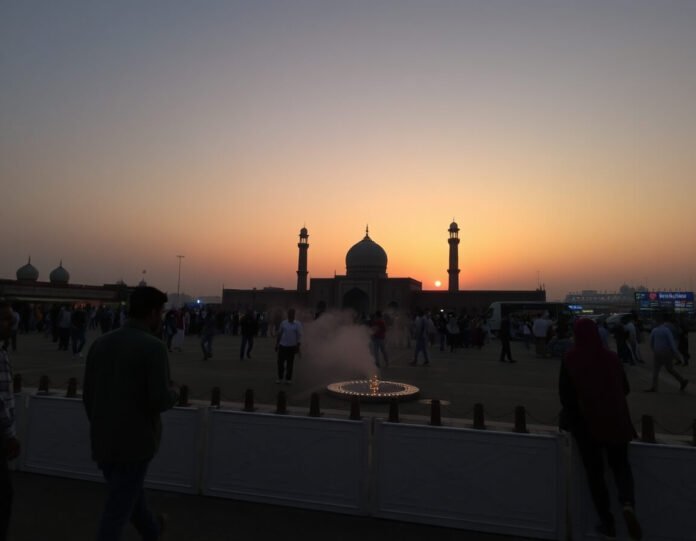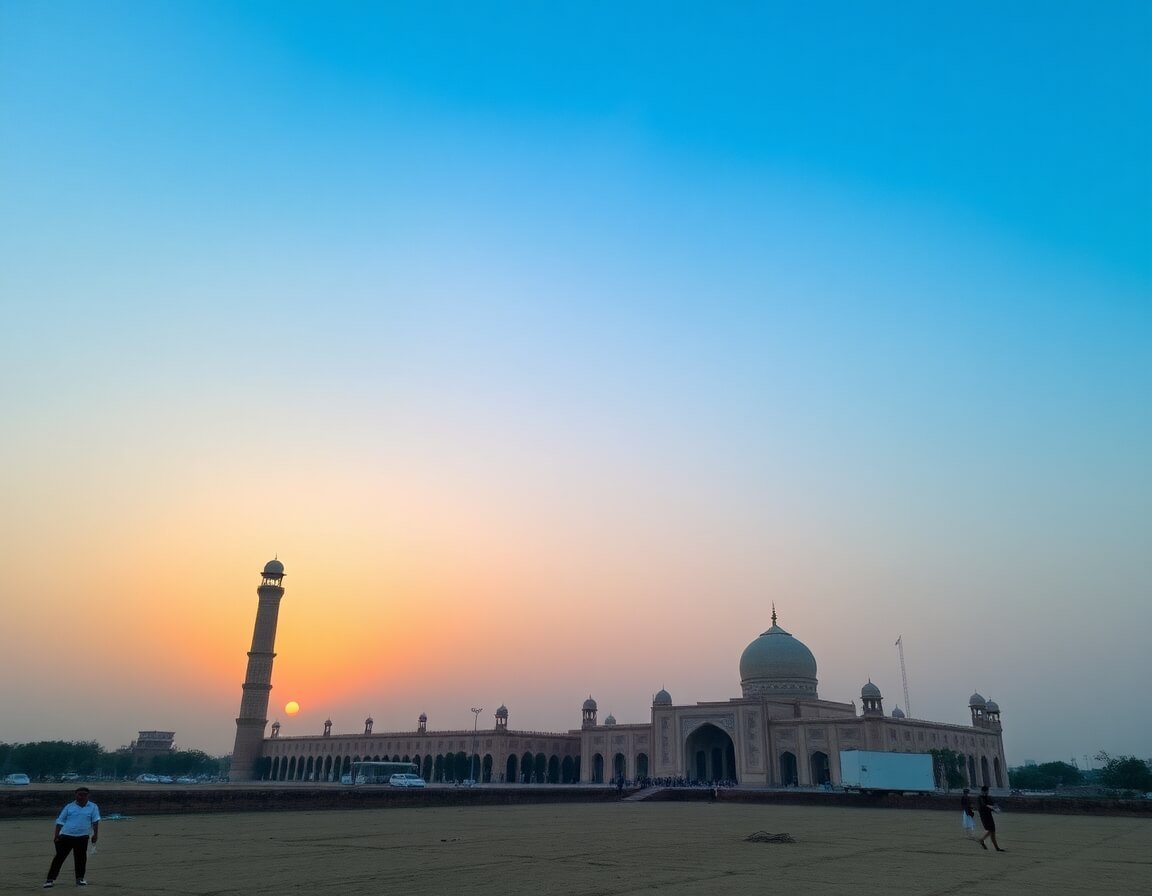Tehzeeb is a term that holds significant cultural and social importance in South Asia, particularly in Pakistan and India. It embodies more than just etiquette or manners; it encompasses refined cultural practices, traditions, and civilization’s influence on an individual’s behaviour. In this article, we will explore the meaning of Tehzeeb in Urdu, its historical roots, and its connection with Recifest, a festival that celebrates the rich tapestry of South Asian heritage, particularly through literary and artistic expressions.
What is Tehzeeb?
The term Tehzeeb (تہذیب) in Urdu generally refers to refinement, culture, civilization, or etiquette. Derived from the Arabic root “ḥ-z-b” (ح-ز-ب), which means to purify, cleanse, or refine, the word signifies a high level of social and moral development. In the context of Urdu-speaking cultures, Tehzeeb has evolved to encapsulate the values of respect, politeness, and grace, all of which are critical in maintaining harmony within society.
In its essence, Tehzeeb refers to cultivating one’s character through knowledge, manners, and the ability to interact with others in a socially acceptable and respectful manner. It reflects an individual’s adherence to values that promote peace, empathy, and understanding—hallmarks of a refined civilization.
The Historical Significance of Tehzeeb in South Asian Culture
Historically, the term Tehzeeb holds deep roots in the Mughal era when Persian culture greatly influenced the Subcontinent. With their intellectual and artistic prowess, the Mughal courts served as a breeding ground for the evolution of Tehzeeb as we understand it today. Persian literature, poetry, philosophy, and the development of Urdu as a language all played crucial roles in shaping the concept of Tehzeeb.
In those times, Tehzeeb was not just an individual practice but a collective societal norm that defined people’s behaviour in royal courts, literary salons, and even everyday life. Whether through poetry, music, or etiquette, the ideals of Tehzeeb guided every aspect of life. For example, the poetry of famous figures like Mirza Ghalib, Allama Iqbal, and Faiz Ahmed Faiz, who blended intellectual rigour with emotional sensitivity, illustrates Tehzeeb and creativity.
Tehzeeb Meaning in Urdu: A Cultural Perspective
When we break down the word Tehzeeb in Urdu, it reflects various layers of cultural understanding:
- Adab (آداب) – Refers to courtesy, respect, and good manners. It involves the understanding of social boundaries, the importance of respecting elders and adhering to norms of politeness.
- Taleem (تعلیم) – Knowledge and education play an integral role in Tehzeeb. A person with Tehzeeb is often well-educated and cultured, with an appreciation for literature, art, and history.
- Akhlaq (اخلاق) – Morality and ethics form the backbone of Tehzeeb. A person who exhibits good moral conduct, honesty, humility, and integrity is said to possess Tehzeeb.
- Folk Traditions (لوک روایات) – These include customs, rituals, and practices passed down through generations. Tehzeeb is often linked with preserving these traditions, as they form the foundation of societal unity.
- Art and Literature – Tehzeeb is also profoundly connected to appreciating art and literature. Poetry, painting, music, and dance are elevated forms of expression in a cultured society.
Tehzeeb and Its Connection with Recifest
Recifest is an annual literary and cultural festival celebrated in many parts of Pakistan and India, particularly in cities like Lahore, Karachi, Delhi, and Mumbai. The event brings together a diverse group of poets, writers, artists, musicians, and intellectuals to showcase the region’s artistic vibrancy. Tehzeeb and Recifest share a natural connection, as the festival focuses on the preservation and promotion of the cultural values that Tehzeeb encapsulates.
Recifest: A Celebration of Culture
At its core, Recifest is a platform that promotes Urdu literature, poetry, and creative arts. With a mix of performances, readings, and exhibitions, the festival attracts established and emerging artists, poets, and writers. This celebration of artistic excellence reflects the Tehzeeb of the region, as it focuses on preserving the traditions of Urdu poetry and promoting the new forms of expression that continue to evolve in modern times.
From mushairas (poetry gatherings) to qawwali performances, Recifest emphasizes the importance of cultural exchange and the role of art in societal development. In this way, the festival becomes a living embodiment of Tehzeeb, encouraging the younger generation to connect with their cultural heritage while innovating and adding their unique voice.
Tehzeeb at Recifest
One of the primary themes at Recifest is the appreciation of Tehzeeb in its multifaceted forms—whether through the spoken word in poetry recitals or the visual representations in art exhibitions. The festival fosters a space where people can witness the harmonious blend of the past and the present, creating a bridge that connects generations through the shared values of Tehzeeb.
At Recifest, discussions of the importance of manners, ethics, and societal norms in the development of the modern individual are often found. These conversations are an essential part of the event, helping participants reflect on how Tehzeeb shapes not only individual identity but also national and cultural identity.
The Role of Tehzeeb in Modern-Day Society
In today’s world, where rapid globalization and technological advancements are continuously reshaping the cultural landscape, Tehzeeb’s importance remains as vital as ever. While some may argue that modernity has shifted societal values, many cultural commentators assert that Tehzeeb must adapt to new times while retaining its core principles.
Preserving Heritage in a Modern World
In a society where individualism and materialism sometimes take precedence over collective cultural practices, Tehzeeb reminds us of the values that bind communities together. It emphasizes the importance of human connections, respect for others, and the preservation of values that have been passed down through generations. Festivals like Recifest play an essential role in keeping these cultural traditions alive, even as they evolve with changing times.
Tehzeeb in the Age of Social Media
Social media has led to a surge in digital interactions that sometimes lack the nuance and grace of face-to-face conversations. The language of Tehzeeb—one of respect, understanding, and empathy—can often be lost in online communication. However, platforms like Instagram, Twitter, and YouTube also offer opportunities for individuals to promote cultural values, showcase their art, and engage in thoughtful discussions.
For instance, Recifest has successfully adapted to the digital age by broadcasting poetry recitals, debates, and panel discussions online, allowing a global audience to experience the nuances of Tehzeeb. The key, however, remains in striking a balance between maintaining the dignity and decorum of Tehzeeb and adapting to the demands of the modern world.
Tehzeeb Meaning in Urdu and Its Cultural Impact
Understanding the meaning of Tehzeeb in Urdu goes beyond just looking at the word’s literal translation. It offers a lens through which we can explore the cultural, social, and historical fabric of the South Asian region. At its core, Tehzeeb is about embodying values of civility, cultural richness, and ethical conduct, all of which are essential in maintaining a society’s harmony.
The Legacy of Tehzeeb
As mentioned earlier, Tehzeeb’s roots can be traced back to the Persian influence in the Mughal era. The flourishing of art, poetry, and literature during this time directly reflects the cultural and intellectual Tehzeeb that defined the period. From the architectural marvels of the Mughal Empire to the exquisite poetry of the time, Tehzeeb left an indelible mark on South Asian culture.
This legacy continues to influence contemporary art, literature, and social conduct. Whether through the musings of modern poets or the contemporary works of artists, Tehzeeb continues to serve as a guiding principle in creating art that is not just aesthetically pleasing but also intellectually and emotionally enriching.
Conclusion: Tehzeeb and Its Relevance in Today’s World
In a world where globalization, technology, and social change are rapidly altering cultural norms, the meaning of Tehzeeb in Urdu remains as relevant as ever. The concept of Tehzeeb is not merely about manners or etiquette; it represents the core values of a society that fosters mutual respect, intellectual growth, and emotional depth.
Recipes offer a unique space where the essence of Tehzeeb is celebrated, preserved, and evolved. By bringing together poets, artists, intellectuals, and audiences from all walks of life, Recifest exemplifies how cultural traditions can be kept alive in modern times. It serves as a reminder that no matter how fast the world changes, the values of Tehzeeb—education.
you may also read: Hepatitis B Transmission: Can You Contract It from Your Spouse?

